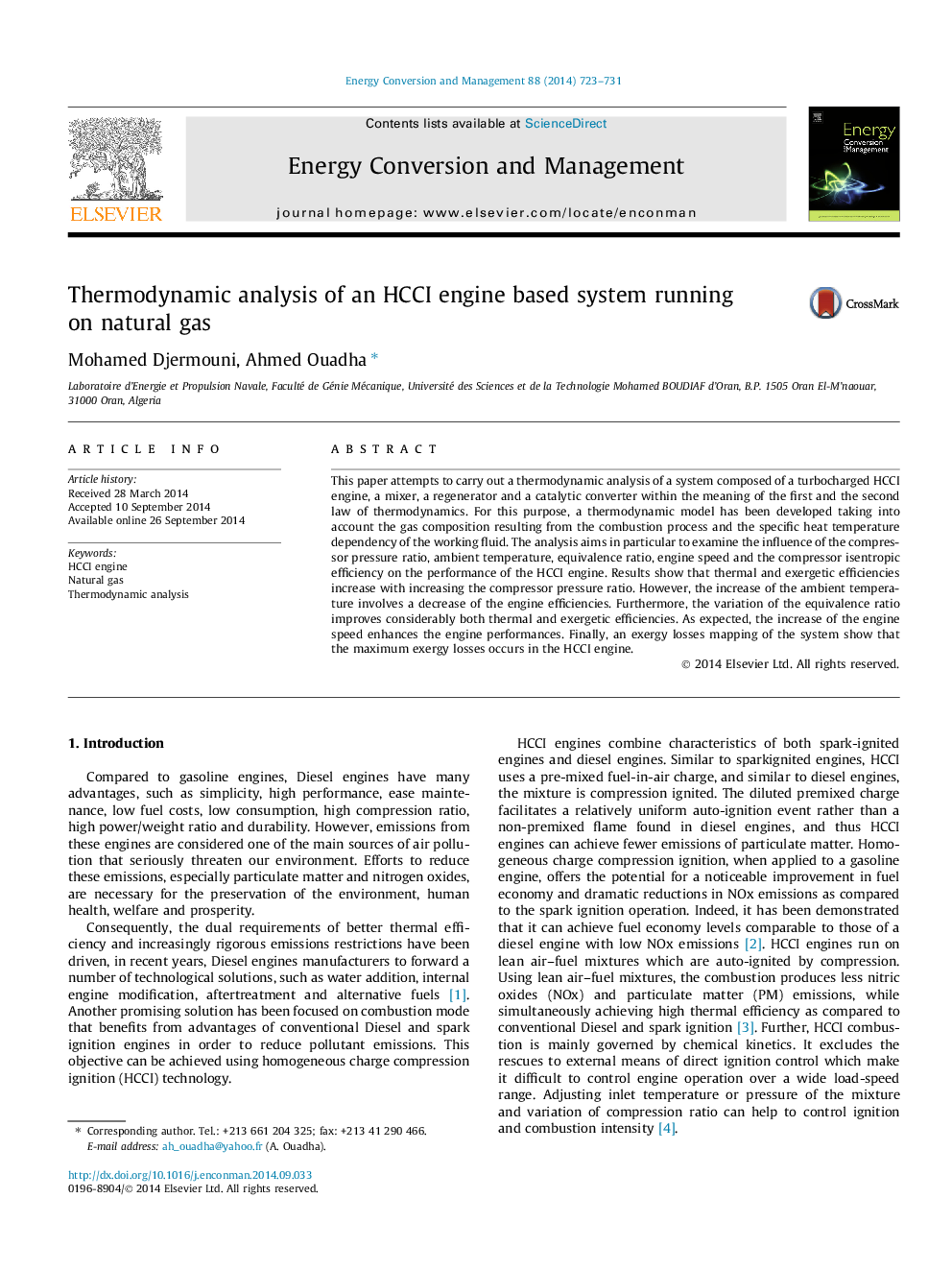| Article ID | Journal | Published Year | Pages | File Type |
|---|---|---|---|---|
| 765688 | Energy Conversion and Management | 2014 | 9 Pages |
•A thermodynamic analysis of an HCCI based system has been carried out.•A thermodynamic model has been developed taking into account the gas composition resulting from the combustion process.•The specific heat of the working fluid is temperature dependent.
This paper attempts to carry out a thermodynamic analysis of a system composed of a turbocharged HCCI engine, a mixer, a regenerator and a catalytic converter within the meaning of the first and the second law of thermodynamics. For this purpose, a thermodynamic model has been developed taking into account the gas composition resulting from the combustion process and the specific heat temperature dependency of the working fluid. The analysis aims in particular to examine the influence of the compressor pressure ratio, ambient temperature, equivalence ratio, engine speed and the compressor isentropic efficiency on the performance of the HCCI engine. Results show that thermal and exergetic efficiencies increase with increasing the compressor pressure ratio. However, the increase of the ambient temperature involves a decrease of the engine efficiencies. Furthermore, the variation of the equivalence ratio improves considerably both thermal and exergetic efficiencies. As expected, the increase of the engine speed enhances the engine performances. Finally, an exergy losses mapping of the system show that the maximum exergy losses occurs in the HCCI engine.
